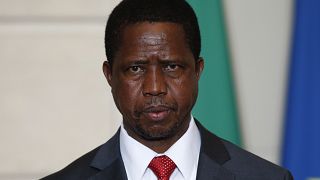The Morning Call
Zambia’s government is planning to start taxing the popular online streaming service, Netflix arguing that the company generates revenue in the country, but does not contribute to its national budget.
The government also argues that Netflix does not abide by local content regulations that require television stations in the country to have up to 60% local programmes that promote the nation’s culture.
Netflix is an American company whose main business is a subscription-based streaming service which offers online streaming of a library of films and television programs, including those produced in-house. It has over 150 million paid subscriptions worldwide.
Indeed, governments all over the world are searching for viable means of taxing digital revenues, including fintech and social media, without hindering access, usage and related growth. Africa’s working solution for now seems to be, levies on usage.
Last year, Ivory Coast imposed a 0.5 per cent tax on transfers via mobile money services. Kenya also increased its tax on mobile money transfer fees from 10 to 12 percent. Uganda introduced a levy of 200 shillings ($0.05) per day to access social media.Benin introduced a tax of 5 CFA francs ($0.01) per megabyte consumed on social media usage. Zambia itself had earlier proposed a daily levy on consumers who use the internet to make phone calls.
Understanding Zambia’s plans
We spoke to Wendson Mavoro, a business journalist at Diamond TV in Zambia, to gain more insights into the actions of his government.
What are some of the factors are fuelling this proposal from the Zambian government?
It is from a cry by local content providers who feel that the playing field is not leveled at the moment, since they are paying taxes and TV levies, whereas these digital tech companies that are providing content, will just come to the market and offer content at a fee, without paying anything.
Does the Zambian government have the capacity to take on the global and powerful tech giants?
When it comes to the Zambian context, I think the government is not yet ready to tax the digital economy. Why I say so, i because the complexities that come with taxing the digital economy are too enormous, and why I say they are enormous is because, as a country, we are not ready at infrastructure level, and if you talk about investment in human resource, we are not yet there as a country. And the possibility of the consumer, the ordinary Zambian being subjected to paying this tax is very high.
How do you think this issue of a seemingly unfair competitive advantage that tech giants like Netflix, Google and Facebook have over local companies, will be resolved?
If you talk about investors in Silicon Valley, if you talk about investors in all these valleys in California, you will find that these are people who are smart, who are strategic, who realised that there is actually a way of conducting business without necessarily having to incur huge costs. They found an easier way. So, what does it mean? It means that revenue administrations at policy level must begin to devise means and ways of how they can tax the digital economy.
Reactions
Zambia’s desire to take on the powerful technology companies elicited mixed reactions from its citizens and beyond.
‘‘So there is no doubt that tech giants hinder competition, but many smaller tech firms have sold their technologies,’‘ says David Girling, a social media for development advocate.
Girling believes that governments should pursue legislation against the monopoly business model favoured by the biggest tech firms, adding that levies should be directed at the companies, not the users.
Anek Candy, a Ugandan, says taxation of popular internet services may have unintended negative consequences, as users limit consumption.
‘‘When you slap a tax on services like Facebook and Netflix, you give the people an option to cut back on their data usage or data need, clearly lowering the data purchases and profit rates and taxable income of their telecommunication companies.’‘
Our people already pay tax through the data bundles they buy. There is no need to tax NETFLIX. Give our people a break. #Zambia pic.twitter.com/TW6PKB1qBp
— Hakainde Hichilema (@HHichilema) October 3, 2019
The NETFLIX tax is a very necessary tax but the inability by the government spokesperson to explain it sufficiently is quiet embarrassing. It is also a weakness on the part of our politicians to play politics all the way even when politics are not necessary.
— SHAMOBA (shamoba_zm) October 6, 2019Dora_Siliya#zambia pic.twitter.com/xjfywseD3J
As long as Zambians rent content on Netflix, it must be taxed somehow. As far as I know, they won't even rent a single room in Zambia, no single employee. What value do they add in Zambia? If they get money from Zambia, a portion of it should remain as tax. #MyView #MyThoughts https://t.co/3ukfFTamxn
— #MyView #MyThoughts…?? (@Patlups) October 4, 2019





![Africanews celebrates fifth anniversary [Night Shift]](https://static.euronews.com/articles/stories/05/57/72/74/320x180_cmsv2_6b1e7837-a917-526b-b3b4-4582a3f8bcac-5577274.jpg)
![Africanews celebrates fifth anniversary [Morning Call]](https://static.euronews.com/articles/stories/05/57/72/70/320x180_cmsv2_a6c857d4-80a3-510a-88e6-f060ea8d9ee9-5577270.jpg)






01:08
Malawi-Zambia communities threaten legal action over elephant relocation
Go to video
Hollywood honors Andre Braugher at premiere of "The Residence"
04:52
Acid spill devastates Zambia’s Kafue River
01:00
Illegal internet access at high security prison in Peru
02:19
Dancing in the street: Kenyan capital emerges as content creation hub
00:54
Nigeria's Ademola Lookman and Zambia's Barbra Banda take top CAF awards